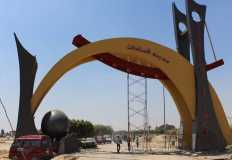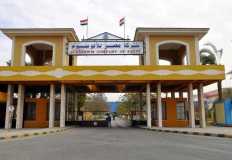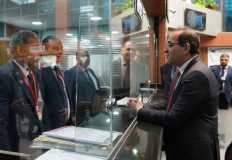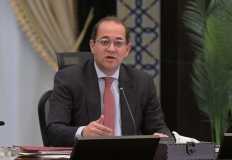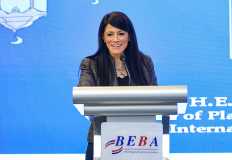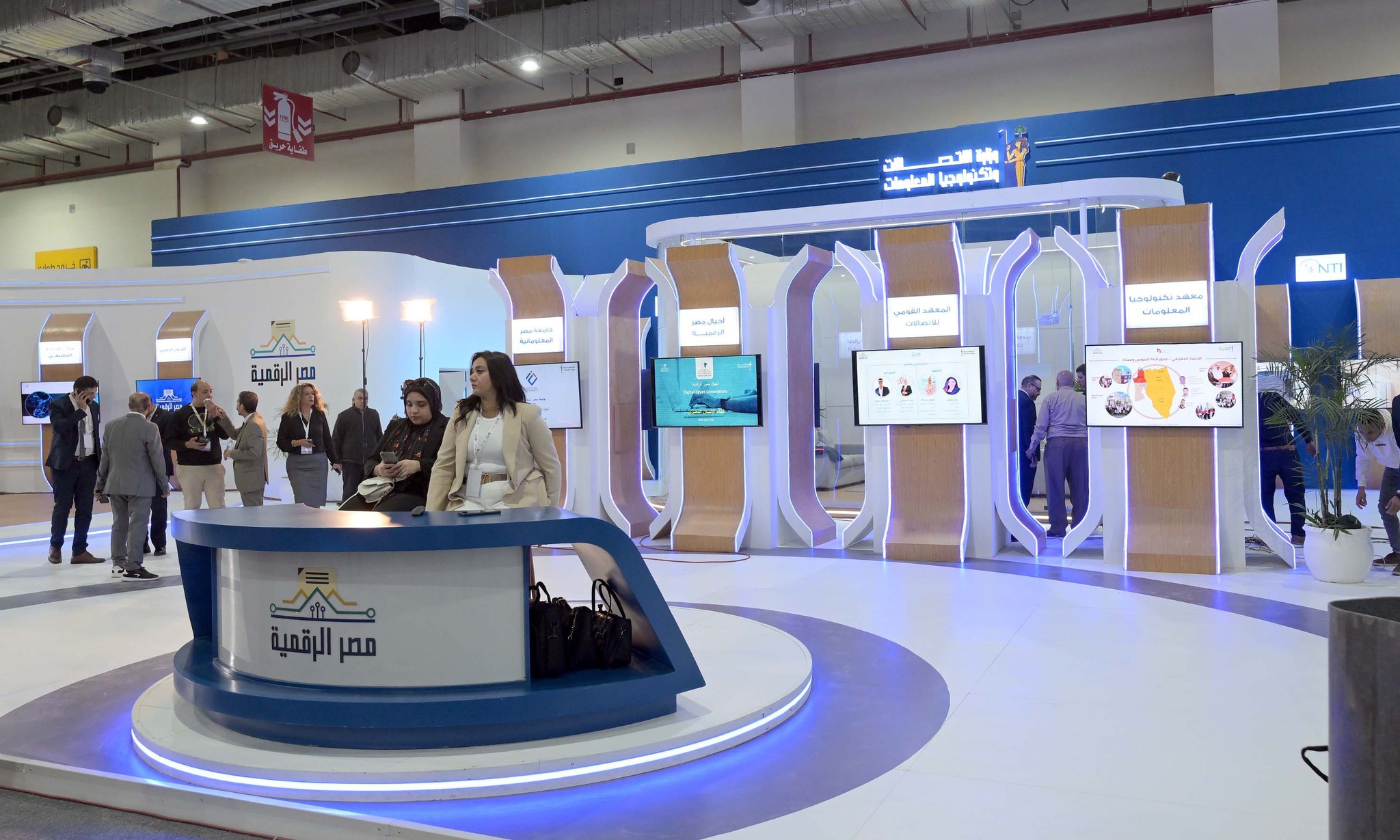
Prime Minister Dr. Moustafa Madbouly inaugurated the 28th edition of Cairo ICT 2024, themed "The Next Wave," on Sunday morning. Representing President Abdel Fattah El-Sisi, he attended the event alongside Dr. Amr Talaat, Minister of Communications and Information Technology.
Taking place from November 17 to 20 at the Egypt International Exhibition Center, the exhibition features participation from government ministries, agencies, local and international companies, as well as experts, leaders, and technology innovators.
Among those present at the
inauguration were Dr. Khaled Abdel Ghaffar, Deputy Prime Minister for Human
Development and Minister of Health and Population, Dr. Ayman Ashour, Minister
of Higher Education and Scientific Research, Counselor Adnan Fangary Minister of Justice, Engineer Ghada Labib,
Deputy Minister of Communications and Information Technology for Institutional
Development, Dr. Mohamed Farid Saleh, Chairman of the Financial Regulatory
Authority, Ibrahim El-Segini, Head of the Consumer Protection Agency, Osama
Kamal, Chairman of Trade Fairs International, the event's organizer, and
several ambassadors and officials from various ministries and concerned
agencies.
Following the inauguration, the Prime Minister toured the various exhibition pavilions, starting with the Ministry of Communications and Information Technology. There, Dr. Amr Talaat provided a detailed explanation of Egypt’s digital strategy, which aims to empower citizens by enabling them to access digital services, secure jobs in the digital economy, and foster digital creativity. The strategy’s core pillars are centered around the citizen, focusing on simplifying government digital services, creating job opportunities in the digital economy, encouraging entrepreneurship and supporting digital innovation, and providing a robust digital infrastructure with widespread internet access.
The Minister of Communications
and Information Technology highlighted the strategic framework, which includes
establishing a legislative foundation for sector governance and user
protection, fostering a conducive environment for local and foreign investment,
and fostering partnerships with the private sector and civil society.
The Ministry's participation in
the exhibition showcased prominent digital transformation projects, such as the
Digital Egypt platform, which has already registered 8 million users, the
comprehensive health insurance mechanization project, the company establishment
platform, and the remote litigation system.
The minister also emphasized the
integration of artificial intelligence into various sectors, particularly
healthcare, with projects like early glaucoma detection, diabetic retinopathy
detection, and breast cancer detection.
Egypt has emerged as a leading nation
in digital innovation and entrepreneurship in the Middle East and North Africa.
The country has established 23 Digital Egypt Innovation Centers and
significantly increased funding for digital capacity-building programs. These
initiatives aim to train over 500,000 individuals, with a focus on empowering
women.
Training programs cater to all
age groups, from children and students to university graduates and
professionals. The government is also actively promoting the outsourcing
sector, with over 145,000 specialists working in various fields like software
development, embedded systems, and electronics design. Egypt has become a hub
for digital services, with numerous outsourcing centers serving clients
worldwide.
During an inspection tour of the ministry's pavilion, Dr. Amr Talaat highlighted the significant growth of the information and communication technology sector. With an annual growth rate exceeding 16% for five consecutive years, it's the fastest-growing sector in the economy. Its contribution to the gross domestic product has also increased from 3.2% in 2014 to approximately 5.8% today. Egypt has made substantial strides in the global digital landscape. It now ranks first in Africa for fixed internet speed, averaging 76.4 megabits per second. Additionally, the country has climbed 49 places in the government readiness index for artificial intelligence, moving from 111 in 2019 to 62 in 2023. Egypt's digital transformation efforts have also been recognized, as it has advanced from group C in 2018 to group B in 2020 and now group A in the government readiness index for digital transformation.
He also explained the Ministry of Communications and Information Technology's role in the presidential initiative "Decent Life," which aims to develop the Egyptian countryside and serve over 50 million citizens in 4,500 villages. The ministry is working to connect 9.3 million buildings with fiber optic cables, upgrade and establish 4,000 mobile towers, spread digital culture to approximately 490,000 citizens, and develop 1,700 post offices.
Regarding the ministry's participation in the Cairo ICT exhibition, Dr. Amr Talaat explained that the event features two halls. The first hall showcases government agencies, including the Egyptian Post, which will highlight its efforts to enhance its role in digital transformation, financial inclusion, and expand its network to 4,600 outlets (with 4,000 already developed). Additionally, there are pavilions for the presidential initiative "A New Beginning to Build the Egyptian Man," the Ministry of Higher Education, the Financial Supervisory Authority, and the Central Bank. These pavilions will showcase the use of technology in various sectors, including education, health, employment, early childhood development, digital examinations, insurance inclusion, and digital banking.
The first hall also includes
pavilions for government digital transformation companies that will showcase
technologies and platforms supporting digital transformation initiatives in
collaboration with the government sector.
Talaat added that the second hall
features the pavilion of the National Telecommunications Regulatory Authority,
showcasing the authority's significant achievements in improving communication
services and launching fifth-generation services for operators. The authority
granted licenses to four companies, investing $675 million, and increased
frequency capacities by 46% over the past six years to enhance mobile service
quality. Additionally, the number of mobile towers has increased by 61% to
improve coverage in various regions, including roads, highways, and Decent Life
villages.
The second hall also includes mobile and information technology companies that will showcase fifth-generation applications, advancements in mobile services, cloud computing services and their applications, and efforts to develop the data center industry in Egypt.
